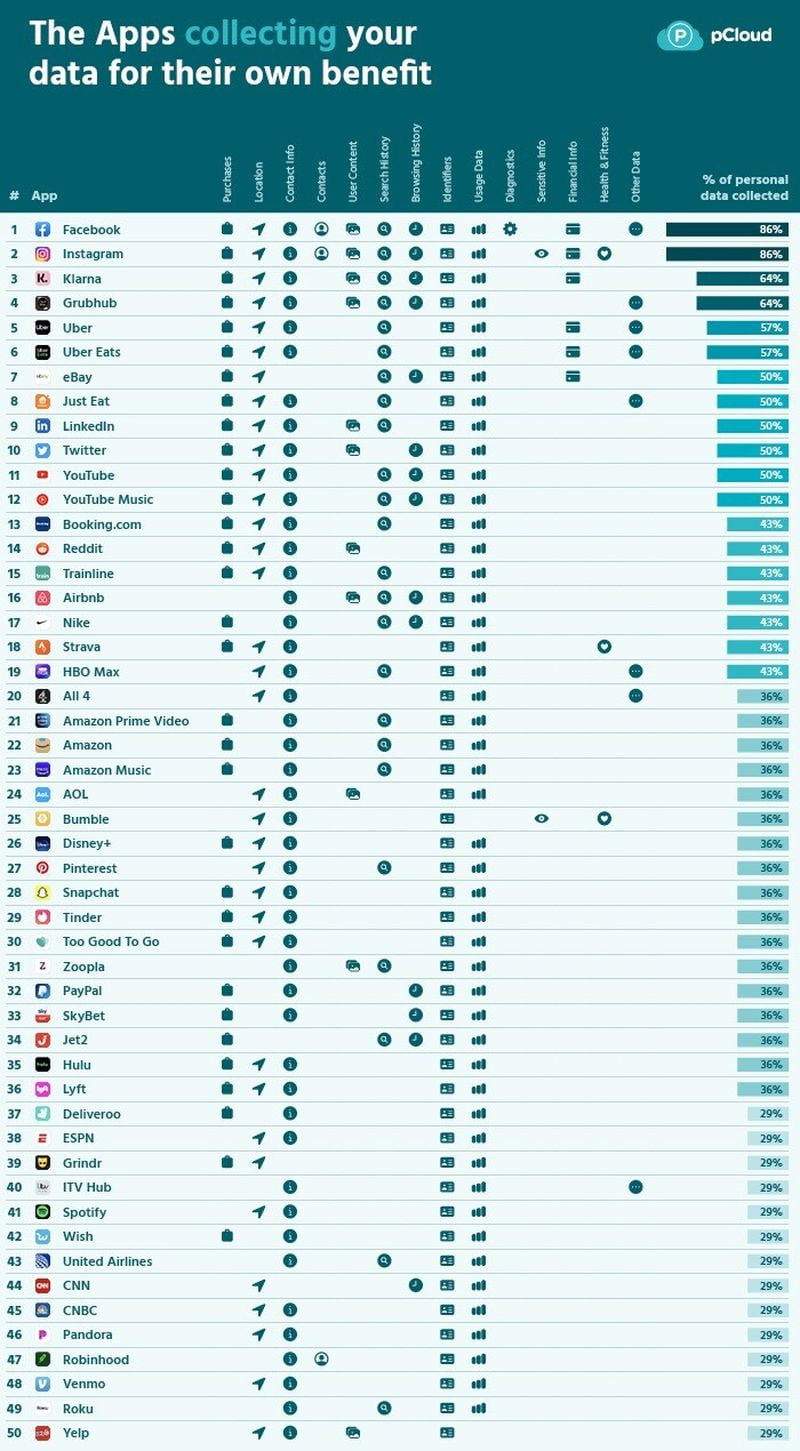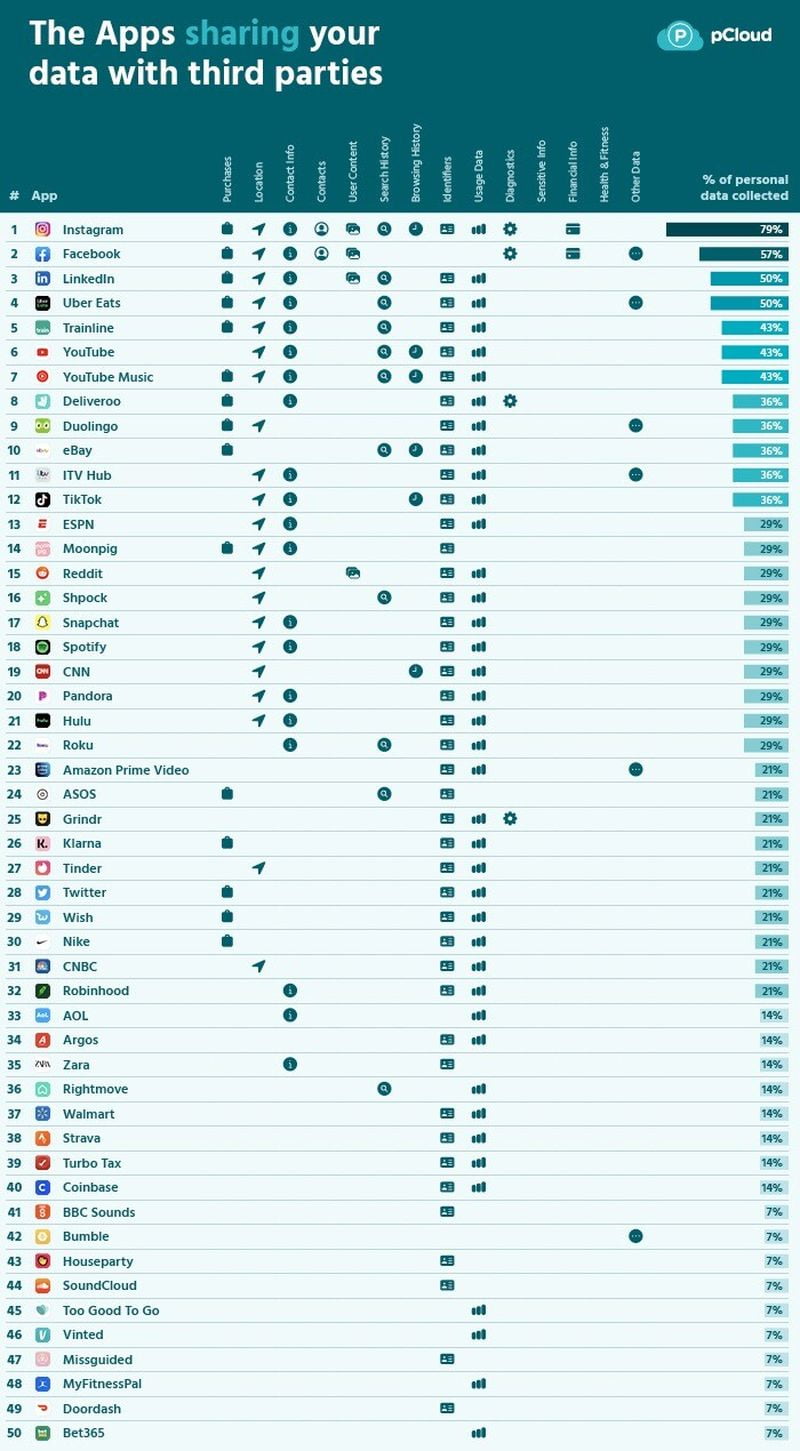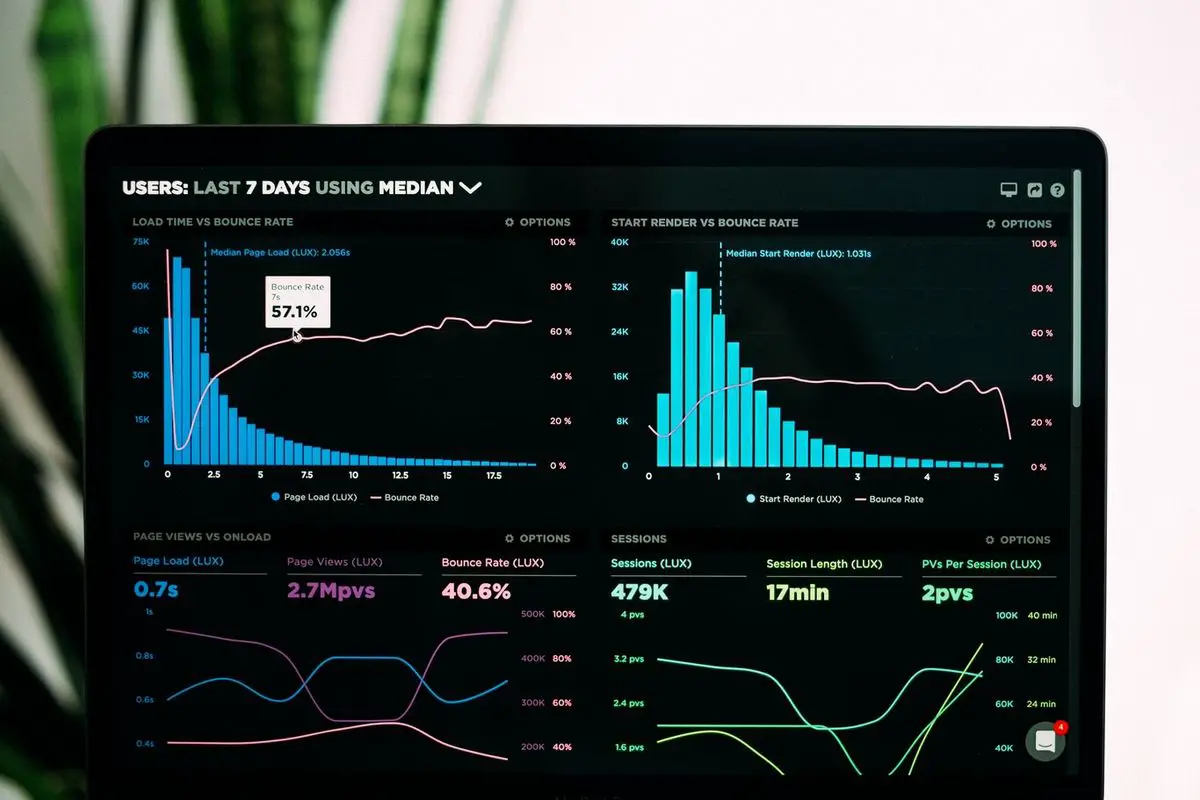A study reveals which apps are the most invasive to our privacy. Thanks to the App Store privacy labels it is now easier than ever to know, at a glance, what information each app collects and how it uses it. So much so that pCloud wanted to analyze this information and created a list of the 50 most invasive apps in the App Store.
A study reveals which apps are the most invasive to our privacy, but without too many surprises
Thus, at a glance, without consulting any data, we probably already have a panoramic view of the apps that collect and share the most personal data: Those whose source of income is advertising. Because of their business model, these apps collect everything they can to sell it or use it to monetize the service.
More than once we have heard that when the product is free we are the product. Of course, there are exceptions, no doubt, but the rule describes quite well what the following graph shows us. Here we can see a list of the 50 apps that collect the most personal information. The list is headed by Facebook and Instagram, which collect no more and no less than 86% of all the data that, according to Apple’s form, can be collected.

It is important to make the following distinction: Collecting data for internal use is not the same as sharing this data with third parties. In this sense, simplifying a lot, an app for buying and selling, for example, may know exactly what items to advertise from its catalog and the information does not come from there, while an app for viewing the weather may be selling “only” our location to hundreds of data brokers. So these tables show us only part of the story, but they do give us a picture of the situation.
When the product is free we are the product. A phrase that frames a type of business model that monetizes by selling the data it collects.

This brings us to the second image, which shows how much of the data collected is shared with third parties. It is striking, for example, that while Facebook and Instagram collected the same volume of data in the previous graph, Facebook shares fewer data and retains more to power its advertising platforms. Similarly, Klarna and GrubHub starred in the data collection chart, while Klarna ranks 26th in sharing and GrubHub does not even appear.
Every time you search for a video on YouTube, 42% of your data is sent elsewhere. This data is used to determine the types of ads you’ll see before and during videos, and is also sold to brands that target you on other social media platforms.
YouTube isn’t the worst when it comes to selling your information. That award goes to Instagram, which shares a staggering 79% of your data with other companies. Including everything from purchase information, personal data, and browsing history. No wonder there’s so much promoted content in your feed. With over 1 billion monthly active users it’s concerning that Instagram is a hub for sharing such a high amount of its users’ data unknowingly.
In second place is Facebook, which gives up 57% of your data, while LinkedIn and Uber Eat sell 50%. When it comes to food apps, Just Eat, Grubhub and My McDonald’s are the only three in our study that doesn’t give up anything at all but instead use your data for location tracking and their own marketing needs.
The truth is that the issue of personal information and privacy goes back a long, long way. For years, certain companies, by attracting users with “free” products, have had a huge data collection structure. It is also true that having a clear view of which apps we might want to avoid using is complex because until now it required diving into a lot of privacy policies, terms of service, etc. App Store tags give a basis for comparison and easy access to information.





